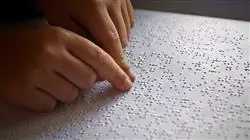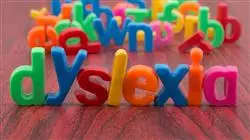University certificate
The world's largest faculty of education”
Why study at TECH?
The psychopedagogical attention to students with specific educational needs requires highly qualified and competent professionals: you can be one of them"

Psychopedagogy has reached, by its own merits, a place of recognition in the current scientific panorama. The knowledge of this discipline has become the subject of Articles, Monographs, and Publications at International level that have shaped a Panorama of great interest for the Professional. These developments have led to advances in Techniques, Disciplines, and Modes of Presence and Intervention that make constant updating an Indispensable Condition.
This increasingly broad program leaves the educational center in order to reach all types of sectors, specifically socio-labor, where it becomes an invaluable asset. The new social and labor circumstances, the new educational challenges, the vertiginous evolution of cultural contexts and many other challenges, require the greatest capacity in the professionals of Psychopedagogy.
In terms of intervention, mediation with families has also become increasingly important. The incursion of new technologies in social, school, or family life, sexual or functional diversity, or any of the new paradigms are not static, but evolve and constantly require a competent look that supports, guides, and serves as a reference and, in turn, has adequate professional support.
A thorough overview of intense challenges that, in this comprehensive program, TECH tries to help students face. With the most complete human and technological resources that will allow us to move forward in a safe, comfortable and efficient manner.
Add extraordinary value to your résumé with the knowledge and skills you acquire during this program"
This Postgraduate diploma in Psychopedagogical Intervention in Special Educational Needs contains the most complete and up-to-date educational program on the market. The most important features include:
- Practical cases presented by Psychopedagogy Experts
- Designed with graphic, schematic, and eminently practical content
- Latest advancements on School Psychopedagogy
- Practical Exercises where the Self assessment Process can be Carried Out in Order to Improve Learning
- Algorithm-based interactive learning system for decision-making in the situations that are presented to the student
- Evidence-based Methodologies in School Psychopedagogy
- Theoretical lessons, questions to the expert, debate forums on controversial topics, and individual reflection assignments
- Content that is accessible from any fixed or portable device with an Internet connection
New intervention methods, new approaches and protocols and the most advanced developments in this area of work, all in a highly specialized program"
The teaching staff of this Postgraduate diploma in Psychopedagogical Intervention in Special Educational Needs is designed by professionals in the sector, who pour all their knowledge and experience into this program to produce quality content, in addition to recognized specialists belonging to leading societies and prestigious universities.
The Multimedia Content has been elaborated with the latest Educational Technology, which will allow the Professional a situated and contextual learning, through which the student will be able to study in a simulated environment in which they will be able to learn in real situations.
The design of this program is based on Problem-Based Learning, so that the professional will have to try to solve the different situations of Professional Practice that arise throughout the course. For this reason, students will be assisted by an innovative, interactive video system created by renowned and experienced experts in the field of School Psychopedagogy with extensive teaching experience.
A Postgraduate diploma created to give you the qualification your résumé needs in an increasingly demanding labor market"

With the best facilities so you can combine your studies with your personal or professional life, without any problems and with total independence"
Syllabus
The structure of the contents has been designed by a team of professionals from leading schools and universities. Structured in specific units, it will allow you to learn in a gradual and sustained way, without losing motivation during the process.

A carefully developed, educational program to offer a highly effective updating and specialization process"
Module 1. Assessment, Diagnosis, and Psychopedagogical Orientation
1.1. Counseling and Psychopedagogical Intervention: Concept, Disciplinary Area, Object of Study, and Trajectory
1.1.1. Concept and Functions of Educational Diagnosis Qualities of the Diagnostician
1.1.1.1. Concept of Educational Diagnosis
1.1.1.2. Functions of Educational Diagnosis
1.1.1.3. Qualities of the Diagnostician
1.1.2. Dimensions, Scopes, and Areas of Action
1.1.2.1. Dimensions of the Psychopedagogical Intervention
1.1.2.2. Spheres and Areas of Intervention
1.2. Psychopedagogical Evaluation: Function and Nature
1.2.1. Concept, Purpose, and Context
1.2.1.1. Concept of Psychopedagogical Assessment
1.2.1.2. Purpose of the Psychopedagogical Assessment
1.2.1.3. Context of the Evaluation
1.2.2. Psychopedagogical Assessment Procedure Evaluation in the School and Family Context
1.2.2.1. Psychopedagogical Assessment Procedure
1.2.2.2. Assessment in the School Context
1.2.2.3. Assessment in the Family Context
1.3. Psychopedagogical Diagnosis: Concept, Possibilities and Delimitation within the Framework of Psychopedagogical Action
1.3.1. The Diagnostic Process and its Stages
1.3.1.1. Diagnostic Process
1.3.1.2. Stages of Diagnosis
1.4. Psychopedagogical Assessment Process According to Different Action Fields
1.4.1. Assessment as a Process
1.4.2. Action Fields and Areas of Intervention and Assessment in the School and Family Context
1.4.2.1. Fields and Areas of Action
1.4.2.2. Assessment Process in the School Context
1.4.2.3. Assessment Process in the Family Context
1.5. Design and Phases of Psychopedagogical Assessment
1.5.1. Psychopedagogical Assessment Procedure and its Phases
1.5.1.1. Psychopedagogical Assessment Procedure
1.5.1.2. Psychopedagogical Assessment Phases
1.6. Techniques and Instruments of Psychopedagogical Assessment
1.6.1. Techniques and Instruments of Qualitative and Quantitative Assessment
1.6.1.1. Qualitative Assessment Techniques and Instruments
1.6.1.2. Quantitative Assessment Techniques and Instruments
1.7. Psychopedagogical Assessment in the School Context
1.7.1. Assessment in the Classroom, Center and Family Context
1.7.1.1. Assessment in the Classroom Context
1.7.1.2. Assessment in the Center Context
1.7.1.3. Assessment in the Family Context
1.8. Information Return and Follow Up
1.8.1. Return of Information and Follow Up
1.8.1.1. Return
1.8.1.2. Monitoring
1.9. Models of Psychopedagogical Orientation
1.9.1. Clinical Model, Consultation Model, and Program Model
1.9.1.1. Clinical Model
1.9.1.2. Consultation Model
1.9.1.3. Program Model
1.10. School Orientation: Tutorial and Family
1.10.1. School Guidance and the Tutorial Function Tutorial Action Plan
1.10.1.1. School Guidance
1.10.1.2. Tutorial Function
1.10.1.3. Tutorial Action Plan
1.11. Vocational, Professional and Job Orientation
1.11.1. Vocational/Professional/Labor Orientation and Maturity. Approaches and Interests
1.11.1.1. Vocational Orientation and Maturity
1.11.1.2. Professional Orientation and Maturity
1.11.1.3. Work Orientation and Maturity
1.11.1.4. Approaches and Interests
1.12. Social, Health, Vulnerability and Social Exclusion Counseling
1.12.1. Concept, Purpose, and Socio-Health Contexts, and Contexts of Vulnerability or Social Exclusion Orientation Guidelines
1.12.1.1. Counseling Concept and Context in the Social, Health and Vulnerability or Social Exclusion Field
1.12.1.2. Purpose of Social, Health, Vulnerability and Social Exclusion Counseling
Module 2. Psychoeducational Attention to Special Educational Needs in the School Context
2.1. Educational Needs in Inclusive Schools and the Role of Educational Psychology
2.1.1. Psychoeducational Care and Intervention. Integration, Diversity, and Educational Inclusion
2.1.1.1. Psychoeducational and Psychopedagogical Care
2.1.1.2. Integration, Diversity, and Inclusion
2.1.1.3. Specific Educational Needs
2.2. Regulatory Framework for Attention to Diversity I: Guidance System and Action Plans
2.2.1. The Tutorial Action Plan and the Academic and Vocational Guidance Plan
2.2.1.1. Tutorial Attention Plan
2.2.1.2. Academic and Vocational Guidance Plan
2.2.2. Professional Structure: Educational and Psychopedagogical Guidance Teams and Guidance Department
2.2.2.1. EOEP
2.2.2.2. Guidance Departments
2.3. Regulatory Framework for Attention to Diversity II: Measures
2.3.1. Measures of Attention to Diversity: Organization of Center Resources and the Plan of Attention to Diversity
2.3.1.1. Organization of Resources
2.3.1.2. Plan of Attention to Diversity
2.4. Learning Skills Development
2.4.1. The Concept of Learning and Competence for Study. Emotional Intelligence and Social Competence in the School Environment
2.4.1.1. Learning and Study Competence
2.4.1.2. Emotional and Social Intelligence
2.5. Learning Difficulties
2.5.1. Definition of Learning Difficulties: Historical Development
2.5.1.1. DA Concept
2.5.1.2. Historical Development
2.6. Literacy Learning Difficulties
2.6.1. Reading Difficulties Dyslexia and Dysorthographia
2.6.1.1. DA Concept of Reading
2.6.1.2. Dyslexia
2.6.1.3. Dysorthographia
2.7. Math Learning Difficulties
2.7.1. Definition of Learning Difficulties in Mathematics. Assessment, Diagnosis, and Intervention
2.7.1.1. Concept of DA in Mathematics Learning
2.7.1.2. Assessment
2.7.1.3. Diagnosis
2.7.1.4. Intervention
2.8. Students with Attention Deficit Hyperactivity Disorder (ADHD)
2.8.1. Attention Deficit Hyperactivity Disorder (ADHD) Profile
2.8.2. ADHD Needs Assessment and Educational Intervention
2.8.2.1. Needs Assessment in ADHD
2.8.2.2. Educational Intervention in ADHD
2.9. Students with High Intellectual Abilities
2.9.1. The Profile of High Intellectual Ability
2.9.2. Needs Assessment in High Intellectual Abilities and Educational Intervention
2.9.2.1. Assessment
2.9.2.2. Intervention
2.10. Students with Late Incorporation to the Educational System and the Educational Compensation System
2.10.1. Concept of Late Incorporation to the Educational System and the Need for Compensatory Education. Educational Compensation Measures
2.10.1.1. Concept of Late Incorporation into the Educational System
2.10.1.2. Concept of Compensatory Need
2.10.1.3. Educational Compensation Measures
2.11. Students with Behavioral Disorders
2.11.1. Profile of Autism Spectrum Disorder (ASD) within Severe Behavioral Disorders. Assessment and Intervention
2.11.1.1. ASD Profile
2.11.1.2. ASD Assessment
2.11.1.3. Intervention
2.12. Students with Disabilities
2.12.1. Intellectual, Sensory, and Motor Disabilities
2.12.1.1. Intellectual Disability
2.12.1.2. Sensory Disability
2.12.1.3. Motor Disability
Module 3. Early Intervention
3.1. Educational Research and Innovation Introduction
3.1.1. Conceptualization and Historical Evolution of Early Intervention. Relationship between Development and Early Learning
3.1.1.1. Concept of Early Care
3.1.1.2. Historical Evolution Early Care
3.1.1.3. Relationship between Development and Early Learning
3.2. Prevention and Main Areas in Early Care
3.2.1. Phases of the Research Process Spheres and Agents
3.2.1.1. Research Process Phases in Early Care
3.2.1.2. Early Care Fields
3.2.1.3. Early Intervention Agents
3.2.2. Child Development and Early Care Centers
3.3. Neurodevelopmental Development During the First Years of Life
3.3.1. Major Biological and Social Risk Factors. Compensation Tools
3.3.1.1. Main Biological Risk Factors
3.3.1.2. Main Social Risk Factors
3.3.1.3. Compensation Tools
3.3.2. Plasticity and Brain Function
3.3.1.1. Concept of Brain Plasticity
3.3.1.2. Brain Function
3.4. Early Psychoeducational Intervention in Cognitive Development
3.4.1. Theoretical Approaches to Cognitive Development. Cognitive Development from 0 to 6 Years Old
3.4.1.1. Theoretical Approaches to Cognitive Development
3.4.1.2. Cognitive Development from 0 to 6 years old
3.4.2. The Preoperational Period
3.4.2.1. Development in the Preoperational Period
3.5. Early Psychoeducational Intervention in Linguistic Development
3.5.1. Early Language Development, Warning Signs, and Early Language Intervention
3.5.1.1. Early Language Development
3.5.1.2. Warning Signs during Early Language Development
3.5.1.3. Early Language Intervention
3.6. Early Psychoeducational Intervention in Social-Emotional Competence
3.6.1. Social-Emotional Development and Early Intervention in Social-Emotional Development
3.6.1.1. Social-Emotional Development
3.6.1.2. Social Contexts and Interactions in Childhood
3.6.1.3. Early Intervention in Social-emotional Development
3.7. Early Psychoeducational Intervention in Children at Social Risk
3.7.1. Situations of Social Risk: Typology of Maltreatment During Childhood
3.7.1.1. Social Risk in Childhood
3.7.1.2. Types of Maltreatment During Childhood
3.7.2. Methodological and Adaptation Strategies in Risk Situations
3.7.2.1. Early Intervention Strategies
3.7.2.2. Adaptation and Coping Strategies in Social Risk Situations
3.8. Early Care Intervention Programs
3.8.1. Intervention Models and Program Typology in Early Intervention Assessment
3.8.1.1. Early Intervention Models
3.8.1.2. Program Typology in Early Intervention
3.8.1.3. Program Evaluation in Early Intervention

This is your moment; push yourself with an intensive program that will put you at the forefront of the job market”
Postgraduate Diploma in Psychopedagogical Intervention in Special Educational Needs
Since the psychologist Howard Gardner put forward his theory of multiple intelligences during the 1980s, the academic landscape became aware that each student head is a world with its own requirements. And if this is true for students in general, it is even more true for individuals with particular cognitive conditions. In order to strengthen teaching in this field, TECH Global University presents thePostgraduate Diploma in Psychopedagogical Intervention in Special Educational Needs, an invaluable complement to the teaching skills for the population suffering from disorders such as autism spectrum or those related to attention and hyperactivity and other cognitive deficits. The conception of our content is endorsed, supervised and taught by a highly qualified multidisciplinary team that will provide the graduate with theoretical resources of indispensable curricular utility. Because we know that the pedagogical link must transcend barriers, this university expert course is your window to professional growth.
Study a postgraduate course on special psychopedagogy
Between 5 and 20% of the world's children suffer from ADHD (Attention Deficit Hyperactivity Disorder), which is equivalent to some 6.4 million children whose learning is a major challenge. This problem does not discriminate geographical borders; in Spain it is said that between 1 and 2 children per classroom (3 to 7% of the school population) are diagnosed with this disorder, while in other countries such as Peru the figure is estimated at 75 thousand affected primary school students. More and more professionals with the appropriate skills are required to address special needs at the educational level. In this context, our program is an indispensable asset. In total there are three modules divided into several subtopics and taught in completely virtual classes; this last feature gives rise to great advantages such as time flexibility. Are you looking for a way to add value to your resume and open job doors? Our online university is your best option to achieve it.







